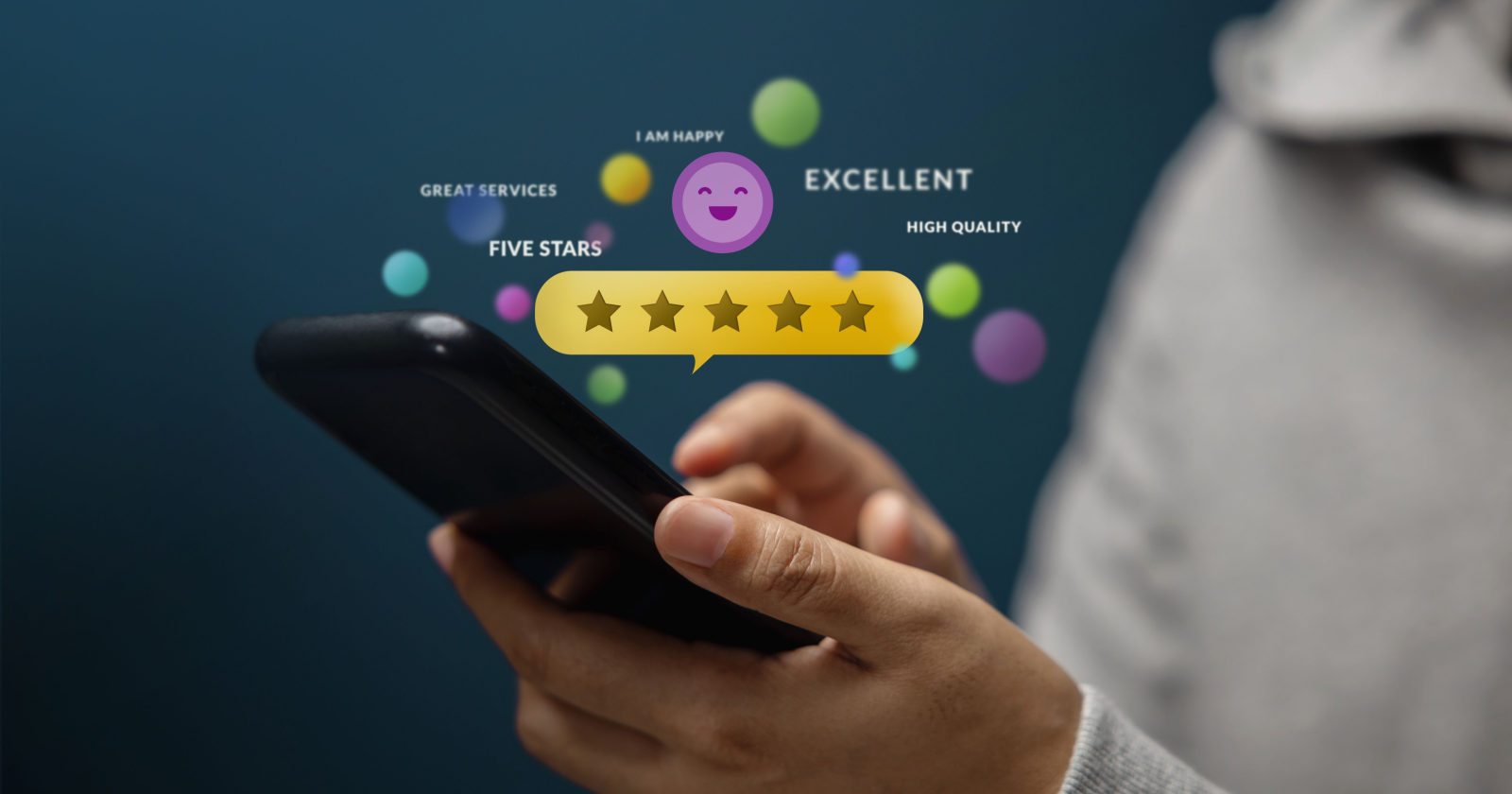In today’s digital age, consumer reviews have become an integral part of the decision-making process for buyers across various industries. From electronics to dining experiences, consumers rely heavily on the opinions and experiences of others to guide their purchases. This article delves into the world of consumer reviews, exploring their importance, the psychology behind them, and how businesses can harness their power to improve customer satisfaction and loyalty.
The Importance of Consumer Reviews

1. Building Trust and Credibility
Consumer reviews are critical in establishing trust between businesses and potential customers. In a marketplace saturated with options, consumers often turn to reviews to gauge the credibility of a product or service. Positive reviews serve as social proof, reassuring buyers that they are making a sound investment.
Research by BrightLocal indicates that 79% of consumers trust online reviews as much as personal recommendations. This statistic underscores the profound influence reviews hold in shaping consumer perceptions. When potential buyers see positive feedback from others, they are more likely to view the product or service as reliable and of high quality.
2. Influencing Purchase Decisions
The power of consumer reviews extends beyond mere trust-building. They significantly influence purchase decisions. According to a study by Spiegel Research Center, products with five reviews are 270% more likely to be purchased than products with no reviews. Additionally, 95% of consumers read online reviews before making a purchase, highlighting the importance of these testimonials in the buyer’s journey.
The impact of reviews is particularly evident in the e-commerce sector, where consumers can easily compare products and read reviews before clicking “buy.” A single negative review can deter potential customers, while a collection of positive reviews can drive sales.
3. Providing Valuable Feedback to Businesses
Consumer reviews are not only beneficial for potential buyers but also for businesses. They provide invaluable feedback that can guide product development, customer service improvements, and marketing strategies.
When businesses actively monitor and analyze consumer reviews, they gain insights into their strengths and weaknesses. For instance, if multiple customers mention a specific feature they love, businesses can capitalize on that in their marketing efforts. Conversely, if reviews highlight consistent issues, companies can address them to enhance customer satisfaction.
The Psychology Behind Consumer Reviews
Software and App Reviews: Maximizing Your Digital Experience
Understanding the psychology behind why consumers leave reviews can provide deeper insights for businesses looking to leverage this information effectively.
1. The Need to Share Experiences
Humans are naturally inclined to share their experiences, both positive and negative. This behavior is often driven by a desire to help others make informed decisions. Consumers feel a sense of responsibility to share their experiences, especially when they encounter exceptional service or a disappointing product.
2. Validation and Empowerment
Leaving a review can be a form of validation for consumers. When individuals share their thoughts about a product or service, they feel empowered, as their opinions can influence others’ decisions. This sense of empowerment is amplified when their review leads to positive changes in a product or service.
3. Social Comparison
Social comparison theory explains that individuals determine their own social and personal worth based on how they stack up against others. In the context of consumer reviews, individuals may compare their experiences with those of others. This can lead to a desire to share their thoughts to align themselves with the community of consumers who have similar experiences.
Types of Consumer Reviews
Consumer reviews come in various forms, each with its unique characteristics and benefits. Understanding these types can help businesses tailor their strategies to encourage and manage reviews effectively.

1. Text Reviews
Text reviews are the most common type of consumer feedback. These reviews provide detailed accounts of a consumer’s experience, often including specific details about the product or service. Text reviews can vary in length, from short, concise feedback to lengthy narratives.
Benefits:
- Rich Detail: Text reviews allow consumers to elaborate on their experiences, providing potential buyers with a comprehensive understanding of what to expect.
- Keyword Rich: Businesses can benefit from keyword-rich reviews, which can improve search engine optimization (SEO) and online visibility.
2. Star Ratings
Star ratings are a quick and straightforward way for consumers to express their satisfaction with a product or service. Typically ranging from one to five stars, these ratings offer an at-a-glance assessment of quality.
Benefits:
- Easy to Digest: Star ratings are easy for consumers to understand and can quickly convey overall satisfaction levels.
- Visual Appeal: Star ratings are visually appealing and can enhance the aesthetics of product listings, making them more engaging.
3. Video Reviews
With the rise of platforms like YouTube and TikTok, video reviews have gained popularity. Consumers create video content showcasing their experiences, providing a dynamic and engaging way to convey their opinions.
Benefits:
- Authenticity: Video reviews often feel more authentic than text reviews, as consumers can see real people sharing their experiences.
- Demonstrative: Video reviews can demonstrate a product in action, offering potential buyers a better understanding of its features and benefits.
4. Social Media Reviews
Social media platforms have become powerful channels for consumers to share their opinions. Consumers often post reviews on platforms like Facebook, Instagram, and Twitter, reaching a broad audience.
Benefits:
- Viral Potential: Positive reviews on social media can quickly go viral, significantly boosting a brand’s visibility and reputation.
- Engagement: Social media reviews allow for direct engagement between consumers and brands, fostering a sense of community.
How Businesses Can Leverage Consumer Reviews
To maximize the benefits of consumer reviews, businesses must actively manage and respond to feedback. Here are some effective strategies to leverage reviews:
1. Encourage Reviews
One of the most effective ways to gather consumer reviews is to encourage them actively. Businesses can do this by:
- Email Follow-ups: Sending follow-up emails after a purchase, thanking customers and asking them to leave a review.
- Incentives: Offering incentives such as discounts or freebies for leaving a review can motivate customers to share their experiences.
2. Respond to Reviews
Engaging with consumers by responding to reviews, both positive and negative, shows that a business values customer feedback.
Benefits:
- Building Relationships: Responding to reviews can help build a sense of community and foster loyalty among customers.
- Addressing Concerns: For negative reviews, responding thoughtfully can demonstrate a business’s commitment to addressing concerns and improving its services.
3. Monitor Review Platforms
Businesses should actively monitor various review platforms, including Google, Yelp, and social media, to stay informed about consumer feedback.
Benefits:
- Staying Informed: Regularly monitoring reviews allows businesses to stay updated on customer sentiments and address issues promptly.
- Identifying Trends: By analyzing reviews over time, businesses can identify trends that may require attention or adjustment in their offerings.
4. Showcase Reviews
Highlighting positive reviews on websites and marketing materials can boost credibility and attract new customers.
Benefits:
- Social Proof: Showcasing positive reviews provides social proof, reinforcing potential customers’ trust in the brand.
- Content Marketing: Positive reviews can be used as testimonials in content marketing efforts, enhancing a brand’s reputation.
The Challenges of Consumer Reviews
While consumer reviews offer numerous benefits, they also present challenges that businesses must navigate.
1. Managing Negative Reviews
Negative reviews can significantly impact a business’s reputation. Companies must be prepared to handle criticism gracefully and constructively.
Strategies:
- Acknowledge the Issue: Acknowledge the reviewer’s concerns and offer a solution or explanation.
- Keep It Professional: Maintain a professional tone in all responses, regardless of the nature of the review.
2. Fake Reviews
The rise of fake reviews poses a significant challenge for businesses and consumers alike. Some companies may resort to posting fake positive reviews or soliciting negative reviews for competitors.
Strategies:
- Monitoring Tools: Implement monitoring tools to detect suspicious review patterns.
- Reporting Mechanisms: Encourage users to report fake reviews to platforms for further investigation.
3. Overwhelming Volume of Reviews
With the proliferation of online platforms, businesses may receive an overwhelming number of reviews, making it difficult to manage them all effectively.
Strategies:
- Automated Tools: Utilize automated tools and software to help manage and respond to reviews efficiently.
- Prioritize Engagement: Focus on engaging with a mix of reviews, prioritizing those that are detailed or express significant concerns.
The Future of Consumer Reviews
As technology continues to evolve, so too will the landscape of consumer reviews. Here are some trends to watch for in the future:

1. Increased Use of Artificial Intelligence
Artificial intelligence (AI) is becoming increasingly prevalent in managing consumer reviews. AI tools can analyze sentiment, identify trends, and even respond to reviews automatically.
2. Enhanced Personalization
The future of consumer reviews may see a more personalized approach. Businesses might leverage data analytics to tailor their responses and encourage reviews based on individual customer preferences.
3. Integration with E-commerce Platforms
As e-commerce continues to grow, the integration of consumer reviews within shopping platforms will become more sophisticated. Consumers may have access to more detailed reviews and ratings, enhancing their online shopping experience.
4. Rise of Influencer Reviews
Influencer marketing is on the rise, and influencer reviews will likely play an increasingly significant role in shaping consumer perceptions. Brands may partner with influencers to create authentic review content that resonates with their target audience.
Consumer reviews are powerful tools that significantly impact the decision-making process for buyers. They build trust, influence purchase decisions, and provide valuable feedback for businesses. Understanding the psychology behind reviews and actively managing them can lead to enhanced customer satisfaction and loyalty.
As the landscape of consumer reviews continues to evolve, businesses must stay ahead of the curve, embracing new technologies and strategies to leverage this valuable resource. By fostering a culture of openness and responsiveness, companies can harness the power of consumer reviews to thrive in today’s competitive marketplace.




